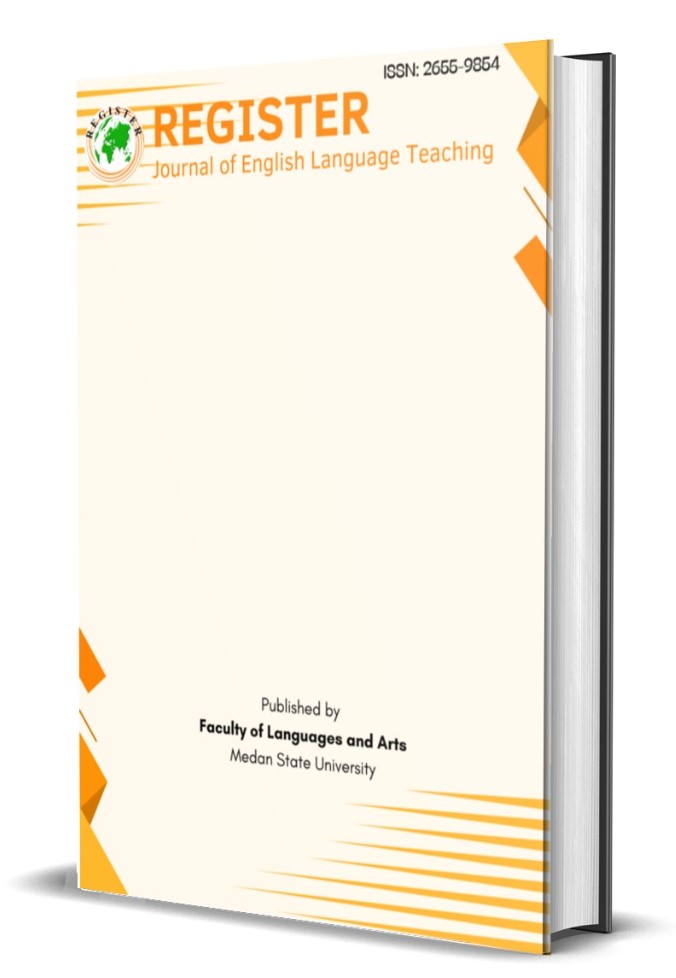Metaphorical Euphemisms in Anies Baswedan’s Instagram Comments
DOI:
https://doi.org/10.24114/reg.v14i1.64368Abstract
This study investigates the use of metaphorical euphemisms in Instagram comments related to Anies Baswedan, a prominent figure in Indonesian politics. The aim is to analyze how netizens use euphemisms to navigate sensitive political discourse in a digital context. Metaphorical euphemisms, defined as expressions that soften or reframe controversial or harsh topics, play a significant role in managing political expression. The research uses a qualitative content analysis approach to examine 15 Instagram comments, categorizing euphemisms into three types: analogy, distortion, and borrowing (Allan & Burridge, 2020). The findings reveal that distortion euphemisms were most common (46.67%), followed by analogy euphemisms (40%) and borrowing euphemisms (13.33%). Distortion euphemisms often reframed negative political situations in a more acceptable or humorous light, while analogy euphemisms employed vivid comparisons to communicate complex ideas in a relatable manner. Borrowing euphemisms utilized terms from other contexts to soften their meaning. The study emphasizes the importance of these linguistic strategies in fostering constructive dialogue while mitigating conflict in politically polarized environments. The findings contribute to understanding how euphemisms function in digital political communication, revealing the creativity of netizens in expressing their views. This research offers insights into the role of language in shaping public opinion and engagement in the digital age.Downloads
Published
Issue
Section
License
Copyright (c) 2025 Riska Ayunda, Putri Rizky Syafrayani, Merry Luz Molina, Meisuri

This work is licensed under a Creative Commons Attribution-NonCommercial-ShareAlike 4.0 International License.
Authors who publish with this journal agree with the following terms:
- Authors retain copyright and grant the journal right of first publication with the work simultaneously licensed under a Creative Commons Attribution License that allows others to share the work with an acknowledgment of the work's authorship and initial publication in this journal.
- Authors are able to enter into separate, additional contractual arrangements for the non-exclusive distribution of the journal's published version of the work (e.g., post it to an institutional repository or publish it in a book), with an acknowledgement of its initial publication in this journal.
- Authors are permitted and encouraged to post their work online (e.g., in institutional repositories or on their website) prior to and during the submission process, as it can lead to productive exchanges, as well as earlier and greater citation of published work (See The Effect of Open Access).
- This work is licensed under a Creative Commons Attribution-ShareAlike 4.0 International License.








